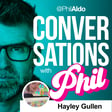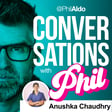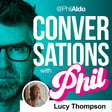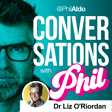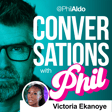
Limitless Em - Emma Campbell - Writer - Speaker - Parent
Emma shares her story of being diagnosed with breast cancer while pregnant with triplets, the challenges of navigating cancer while raising young children, and her journey of finding mental resilience and a new appreciation for life after facing multiple cancer recurrences.
Emma discusses:
Her initial diagnosis: A lump in her breast, discovered while dealing with fertility treatments and a difficult pregnancy.
The impact on her family: Managing her diagnosis and treatment while raising four young children, and the emotional toll it took on everyone.
Her secondary diagnosis: The devastating news of a recurrence, and how it impacted her mental health, causing anxiety and fear.
Her approach to living with secondary breast cancer: Emma talks about the importance of staying active, finding joy, and embracing the "limitless" potential that she believes everyone has.
The importance of sharing stories: Emma emphasises the value of sharing her story and connecting with others in the cancer community, as well as the need to raise awareness and make a change in how breast cancer is perceived and treated.
Emma expressing a desire to continue making a positive impact, affirming the strength and resilience of those living with cancer.
